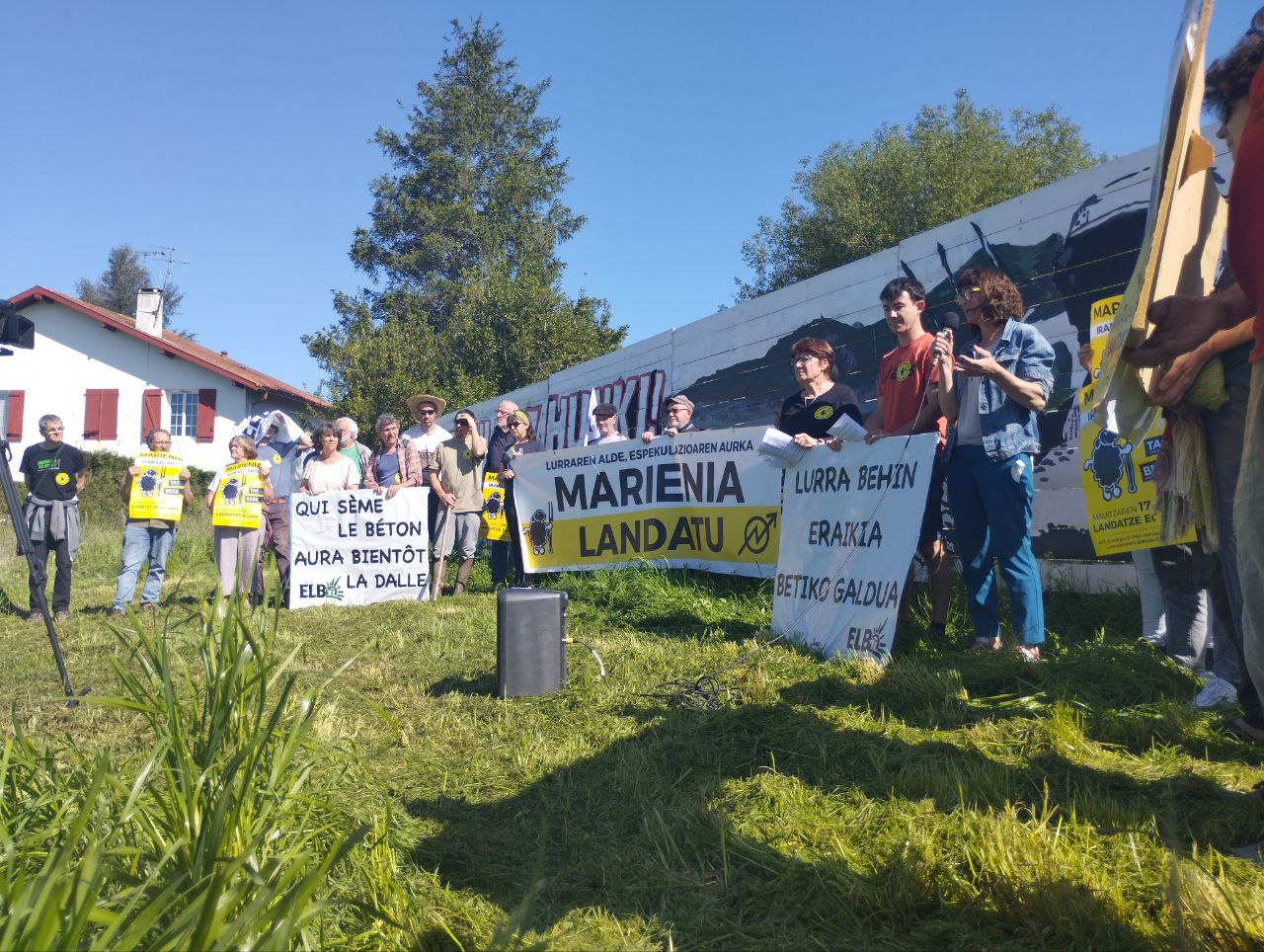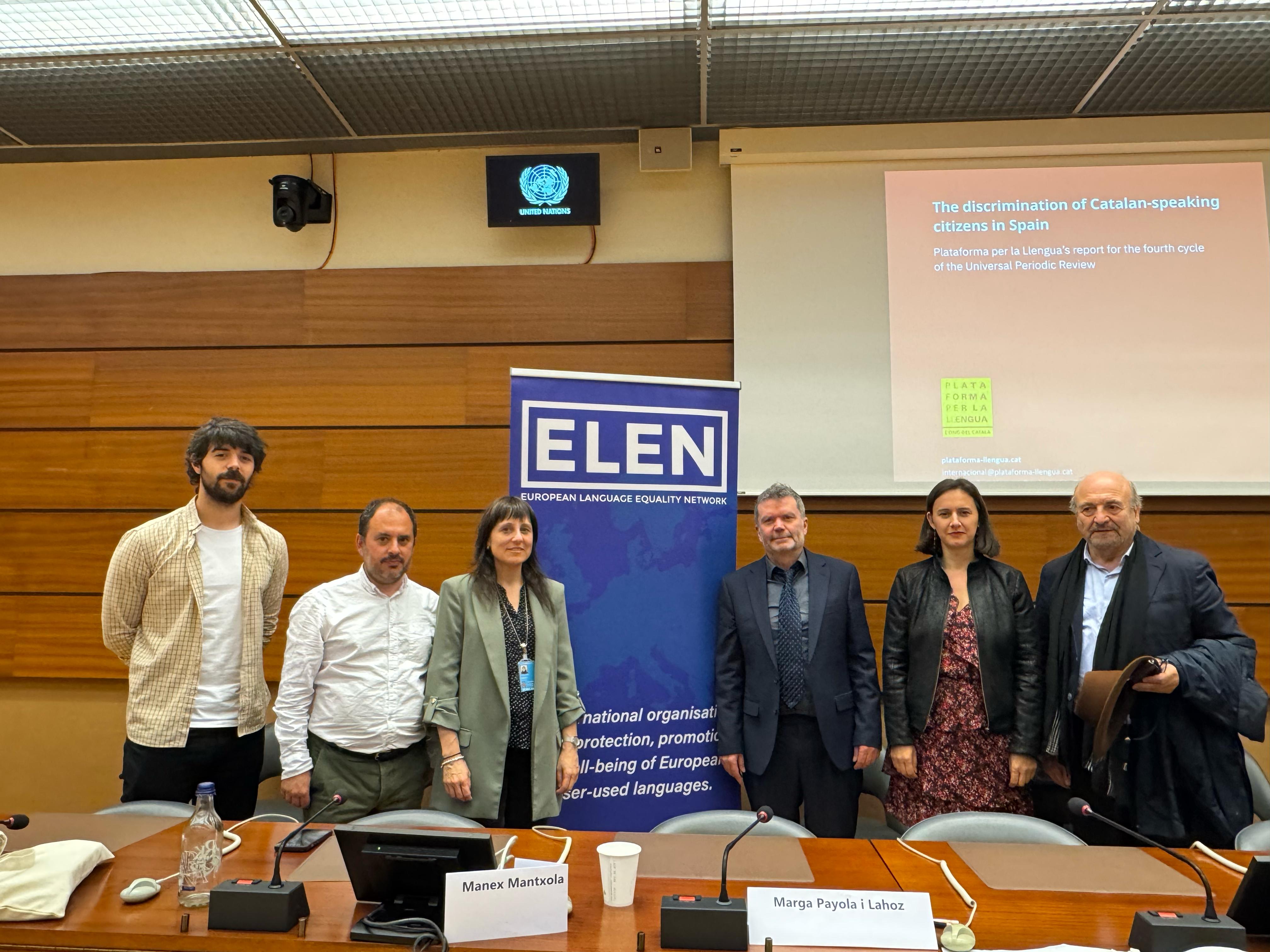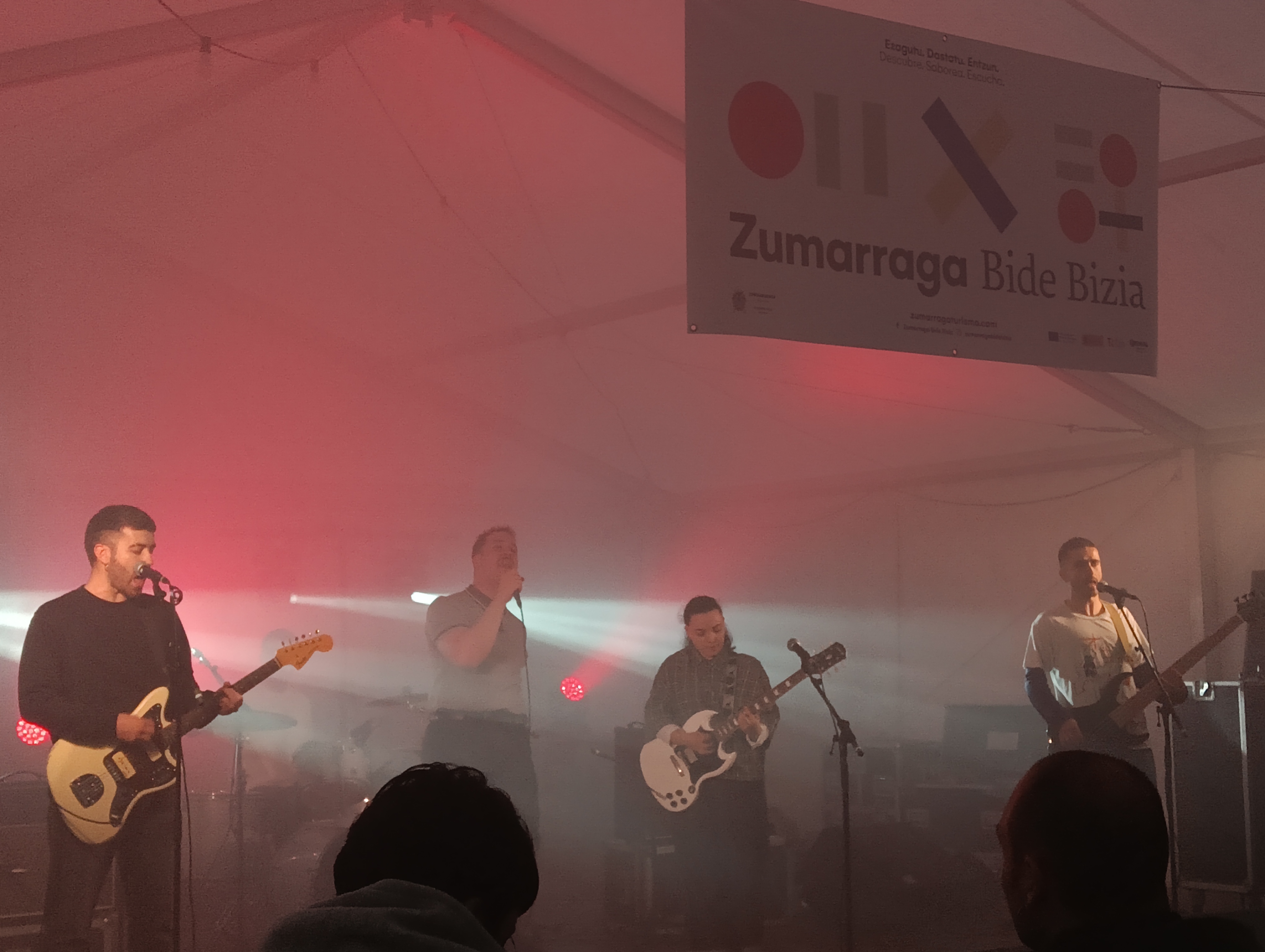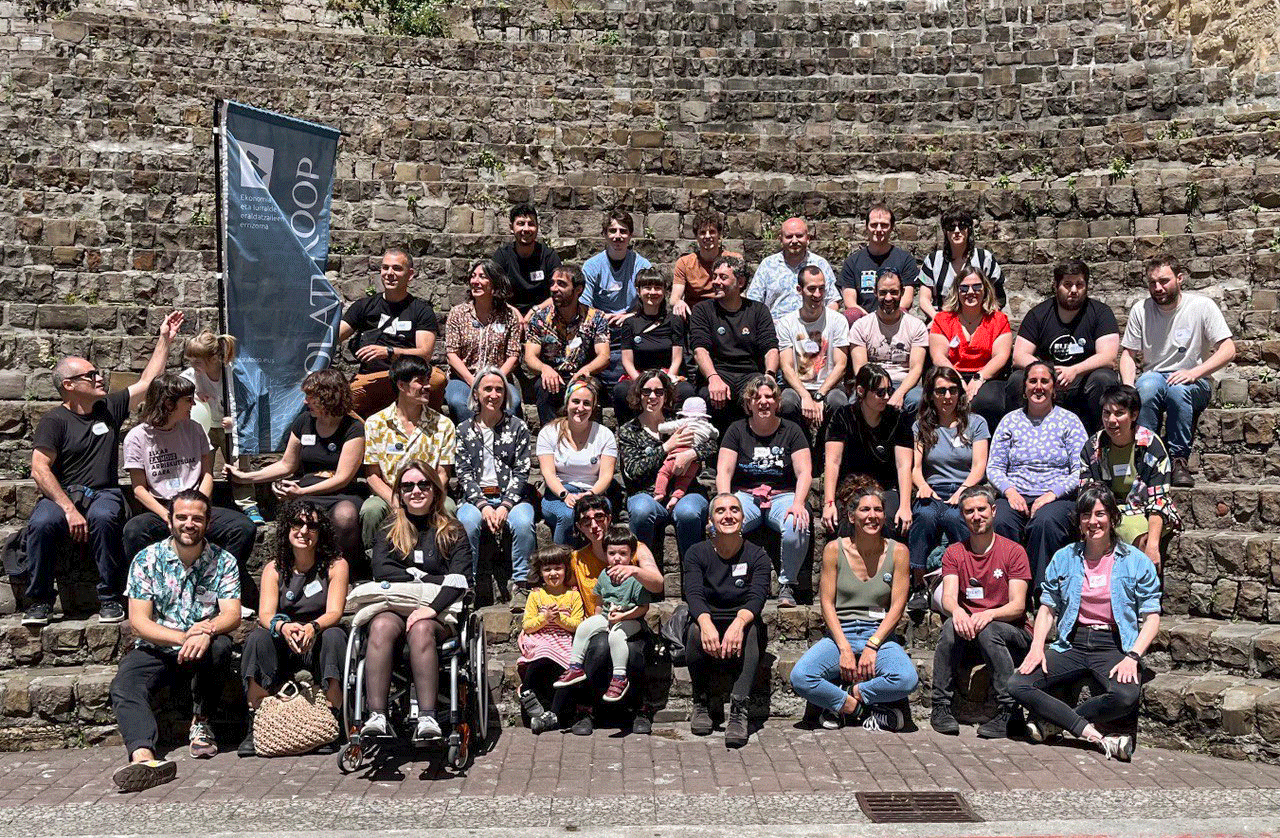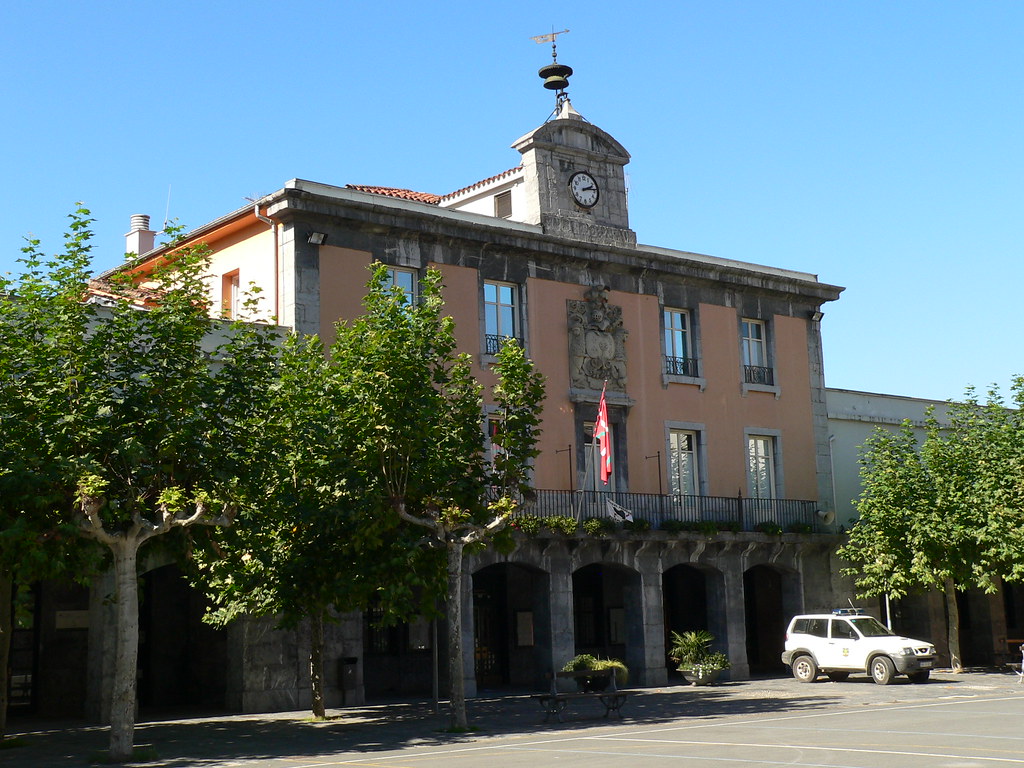"The social currency of your neighbourhood will not bring down the euro, but it creates more livable lives"
- It is undeniable: our world is rough for the majority of living beings, so why don’t we want alternatives? In an attempt to answer this question, and to show that other worlds and ways are actually underway, the political scientist Alicia Valdés has written a book. It was presented at the Caquilda bookstore in San Sebastian at the end of March.

by Alicia Valdés
Political scientist and doctor of humanities. He works as a university professor. He wrote a thesis on psychoanalytic theory and intersectional politics, which deals with subjectivity, body, identities and desire, combining different disciplines. Today, she is writing stories and a beautiful smile comes from inside when she is asked about it.
Politics of malestar. You’ve launched Why We Don’t Want Alternatives to the Present (The Restlessness Policy: Why We Don’t Want Alternatives to the Present). Where did the writing come from, and what does it have to do with your previous work, Towards a New Lacanian Left?
The publishing house Debate wanted to launch a book on politics and psychoanalysis that was proposed to me. People write for money: putting that on the table is important and honest. From one of those. Then, the other book that you mention is my doctoral thesis; in my thesis, I studied Lacanian psychoanalysis and feminist political philosophy, and this second book allowed me, in a certain way, to land, translate the contents of the thesis, and reach a different audience.
Psychoanalysis leads to distrust. But, as you say in the book, “the realization of the heteronormative and androcentric tendency of the application of psychoanalysis does not imply the exclusion of [psychoanalysis itself] as a source of subversion.” How did you approach this stream yourself?
When I was young I started reading Freud, a question of dreams that interested me a lot. As I grew older, as anarchist and feminist militancy gained strength in my life, I moved away from psychoanalysis precisely because of the commonly held imagination of psychoanalysis. But when I did my master’s degree in political philosophy, a professor, Sonia Arribas, introduced me to Lacan, and that changed everything. In political science, all political behavior was explained by a certain type of subject – who is not the subject of psychoanalysis – and it seemed to me that these theoretical explanations did not correspond to the behaviors that the subjects actually had afterwards. And when I started with my thesis, I knew I wanted to continue on the path of psychoanalysis. I thought it was a very strong frame. Of course, I needed a gender review, but it was worth it.
What attracted you the most?
Concepts of deprivation. Understanding the subject as a fragmented subject, as a non-harmonious subject: this became very useful to me. I thought: here it is. Otherwise, Cartesian political philosophy does not understand the contradiction; it does not allow itself to understand the contradiction.
What are the limits of an approach that considers the subject to be perfectly rational?
We see them, we see them, we see them. If, as we have been told, the subject is perfectly rational; if he acts only according to his will and conscience; if he is a free, independent and autonomous subject; if the subject really behaved in this way, we would not be able to understand many of the behaviors of today. And I think that’s the main limitation: instead of trying to explain something, just get into the drawer of irrationality.
It is often said that the voter is stupid: less is intellectually and morally. But that's not a political analysis, that's a moral sentence, a value opinion, and if you want to do that, then okay, but don't say it's a political analysis. This made me feel great, it seemed to me that you had to look at what is happening today from a slightly more open perspective, because if you don’t make a good diagnosis of the subject and the phenomenon, what the hell are you going to offer to people?
.jpg)
Several times in the book you mention the question: why does a worker vote for the extreme right?
This question has not been a compass for me, it has not guided my reflection, but it has helped me to put on the table what is happening. This is a question that many people have in mind. After all the electoral process that the left does not win, many people say that the workers are stupid, that we are all stupid, that we do not know how to vote, but I think we have to go a little further.
When I ask myself this question, I think, why not? Today, to decide whether things are rational or irrational, they are classified as follows: if something benefits your material interests, then it is rational, and in the negative, it is irrational. But Marx already explained all this with the concept of false consciousness. False consciousness is the act of a subject without understanding or considering its material conditions. The fact is, however, that apart from material interests, there are other interests; the fact is that there is a wide range of interests that have nothing to do with materiality, or at least with what we consider material. And I think that's what we need to influence. This person is not acting against their interests; the fact is that their interests do not correspond to their material conditions or to any other interests.
Another idea: the desire is never fully satisfied; it always acts as a motor. I'd say it's hard for us to accept that.
We have invented a system, an economic, political and social system, in which you are told that it is possible to fully satisfy the desire, then, of course, when you are told otherwise, you are triggered by a huge crisis. It's a complex one. A lot of questions about the book: “What do you mean, isn’t it hard?” Psychoanalysis in this sense is the subject of bad news, but I don’t know, I like the salt and pepper of life. If the desire was really satisfied, it would mean that you would never want anything again, and that, to me, well... I think, basically, the key is to accept the lack.
According to you, psychoanalysis brings to light “the conflicts that produce the symptoms of our restlessness,” but “it will not be therapeutic.”
It is the logic of everything, not the logic of universalization: psychoanalysis has this logic inherent, but also feminism. In feminist epistemology it is often said that things cannot be universalized because there is no universal experience. In psychoanalysis the same: it must be constantly recognized that totalizing logic is not possible.
In this sense, and specifically addressing your question, in the therapeutic experience that is currently sold, it seems that you are told: continue the therapy and your problems will disappear. And on the left side it says something like this: when we get to the government, unicorns and rainbows will prevail; and on the political level they sell us some absolutely magnificent horizons of this kind. But in psychoanalysis we do not tell you that from now on you will not have problems; no, you will have new problems, but perhaps you will be able to live with these new problems.
For example, for example?
Recently I returned to Asturias, something I’ve wanted to do for a long time. But of course, when you make a change in your life, in this case leaving Madrid and Barcelona, many people think that by doing so you will be completely happy, in the new place you will not have problems; no, honey, you will also have problems in the new place, the point is to be able to live with the problems you have. It's completely different.
Now, my problems are different. Living in a city with a different lifestyle does not cause me zero problems, but I can live with the problems and the impatience that it causes me. You have to accept that. For many people it will not be a desirable narrative, but it serves me and many others, and at least I found it interesting to raise this idea.
Within the logic of everything, you mention the alternatives that are currently in operation.
Let me start by making the following clear: if critical thinking does not mobilize, it is not critical. I come from militancy and I have asked and wanted this to have something to do with reality and proposals and the call to action. I think it's essential.
Then we will see how we can bring the contributions of psychoanalysis to reality, or what is the praxis of it. Well, you see, it’s related to the idea that, it’s true, my feminist assembly won’t abolish heteropatriarchy; or, we set the example of veganism yesterday: if you, in Valladolid, don’t eat animals, that won’t stop killing pigs in Soria, but then what, since you don’t get that, should you abandon your action? That’s the logic they sell us: if your non-hegemonic behavior doesn’t become hegemonic, then leave it. But look where we would have told you something else about anarchist logics. Yes, your behavior is not hegemonic, your action is not hegemonic, the social currency of your neighborhood will not overthrow the empire of the euro, the dollar or the yen, but it forms more livable lives. Beyond that, the system in which we live, the world of systems known as capitalism, leads us to despair.
This logic of everything, in my opinion, unlocks us. Otherwise, you feel complete impotence.
Yeah, it's related to that. There's a genocide going on, there's an ecocide going on, and you're either at work or at home scrollating. It is complex and creates a lot of pain and restlessness. I think that sometimes admitting that our activism has limits allows us to continue in activism. In this sense, militancy should be more rewarding: if we measure our activism according to our successes in changing the system, we will always receive bad evaluations. I think we should go in a different direction.
.jpg)
You have also written about affection and companionship, but emphasizing the importance of both affection and radical companionship.
Friendship seems to be on everyone’s lips right now. When a concept appears in this way, everywhere, we need to make a constant critical review; and we need to see what we are talking about when we talk about companionship. That is to say, let us not simply join the current, because the current of the system in which we live, capitalism, is a bit cunning. What is the concept of companionship? Capitalism says: Well, that’s a new niche market. What are the affections? Capitalism says: Great, I’m going to make a fortune. To me, this is a setback, because if an element becomes fashionable, it can be phagocytized by capitalist logics, and we have to be vigilant.
You talk about the breakdown of friendship. And you say that friendship, more than a mere bond, is an action.
Today we talk a lot about connections and relationships, and I thought: is every connection allowed? I don't know, I have a lot of connections with people I don't want in my life. That is, we have ties to members of our family who have done us a lot of harm, to people who have mistreated us. So I don’t know if the link itself is the radical, or what happens, the action.
As I wrote with the text of friendship, as with the Politics of Malestar, I was giving answers to what was happening to me. I had two very painful friendship fractures at that time. I no longer wanted to be friends with these people, but it was not that they left me, I wanted to break up the relationship and I felt bad: I did not want them in my life, but I did not understand why, because we loved each other. A huge mess. I tried to understand why, and if I had just looked at the connection, I would never have understood it.
What did you conclude that your actions no longer coincided?
Well, for me, it was something like this: it’s been a long time since we’ve been the same people as before, it’s been a long time since we’ve been separated, and yes, we love each other very much, it’s been a very beautiful friendship, it’s been wonderful moments, but here there’s an impatience. In one case, even though he treated me very well, other people didn’t, and I don’t think he could behave like that with people. It's a complex one. And well, I’ve taken the case of friendship, but I think it serves for all connection: what is more important, connection or action? For me, the action.
The last question: a lot of songs appear in the book, what place does music have in your thinking?
Let’s see, it’s obvious that I’m a punk, I don’t hide much [laughs]. For me, punk is not a mere aesthetic, but a way of understanding everything. I look at life from punk. And I have come to this punk ethic for life thanks to music, to activism, to what I consider a punk culture. The stories I write about in the book have been told to me by the songs. The book itself begins with a quote from La Polla Records: “Too many people live sadly / and will die democratically.” Yes, that's right, Evaristo. So, I wanted to explain that I'm not discovering gunpowder here. I came here by the hand of a pogo.
“Even with all the shortcomings, the unions have done more for humanity than any other human organization that has ever existed. They have contributed more to dignity, honesty, education, collective well-being and human development than any other association of people.” ... [+]
Harri-jasotzearen gorakada nabaritu da azken urteetan, batez ere emakumeen artean. Gazteek harri eskoletan ikasten dute kirolean esperientzia dutenengandik. Crossfit-a, sare sozialak eta telebista faktore garrantzitsuak izan dira kirolaren piztualdian, harri eskolekin batera... [+]
Rudolf Botha hizkuntzalari hegoafrikarrak hipotesi bat bota berri du Homo erectus-i buruz: espezieak ahozko komunikazio moduren bat garatu zuen duela milioi bat urte baino gehiago. Homo sapiens-a da, dakigunez, hitz egiteko gai den espezie bakarra eta, beraz, hortik... [+]
Böblingen, Holy Roman Empire, 12 May 1525. Georg Truchsess von Waldburg overthrew the Württemberg insurgent peasants. Three days later, on 15 May, Philip of Hesse and the Duke of Saxony joined forces to crush the Thuringian rebels in Frankenhausen, killing some 5,000 peasants... [+]
Aramu + AimarZ
When: April 26.
In which: The Zumarraga Open Field.
---------------------------------------------------------
The website of the City Council says: "The tourist brand Viva Viva and the festival of the same name are designed to show the world the soul of... [+]
Zenbait urtetatik hona sarri entzuten dugun kontzeptua da zaurgarritasuna. Gaur gaurkoz, diskurtso politikoetan pertsona zaurgarriez aritzea ohikoa da. Seguru nago nik ere inoiz erabili dudala berba hori Bizilan.eus webgunean, eskubide laboralak eta prestazio sozialak azaltzeko... [+]












